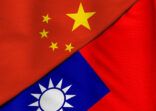The platform targets accredited investors in Singapore and mass-affluent investors in Southeast Asia and allows them access to the alternatives asset class.
Previously, these types of products were only available to private banking and institutional clients, Kit Wong, CEO of Lu International told FSA.
The minimum investment is $1000 and an aggregation process allows investors to buy complex products, such as private equity and structured notes, which they wouldn’t normally be able to purchase because the minimum dealing size is too restrictive, he said.
There are 20 products on the platform, comprising a mixture of open-ended and closed-ended funds. The firm works with financial institutions, such as Blackrock and Pimco, to offer diversified funds, according to Wong, whose background includes time as a director for sales strategy and operations in Asia-Pacific at Google and head of strategy for Asia-Pacific, Europe and America at ANZ Bank.
“The list of funds available changes regularly, depending on investors’ preferences and anticipated trends. It is a curated platform, not a supermarket. However, investors can still monitor, assess or exit the funds they have bought, even when they are no longer offered on the platform,” he added.
There are no subscription fees, but the firm takes a cut of the fund provider’s management fees.
According to Wong, the platform has 300,000 registered customers from 19 nationalities. The average amount invested by individual investors is around $25,000.
Most customers are Asia-based, between the ages of 35 and 40, and typically they have a finance or technology background. Wong believes retirees are also becoming more interested.
Lu International, owned by Ping An-owned Shanghai Lujiazu (Lufax), was granted a capital markets services license from the Monetary Authority of Singapore (MAS) in July 2017.
It launched its Lu Global online platform in Singapore in September last year, following the spate of robo-advisors or “intelligent wealth management” platforms that have popped up in the region.
Another Singapore-based firm, Kristal AI, is also targeting the mass affluent, FSA reported earlier.
Product suitability
In response to fears that unsophisticated investors might be lulled into buying inappropriate products, Lu insisted that some complex products, such as private equity or structured notes, are only available to accredited or professional investors – although their definition varies depending on jurisdiction.
The investor onboarding process uses big data, optical character recognition, GPS verification, facial recognition and artificial intelligence technology, according to the company.
“Facial recognition technology is used to run checks on investor details including real-time face verification and name screening checks,” Wong said.
He added that the platform also adopts know-your-product (KYP) and know-your-customer (KYC) compliance procedures, alongside an anti-money laundering (AML) and anti-fraud system.
“We’re now looking to work with partners in other countries,” said Wong.

















